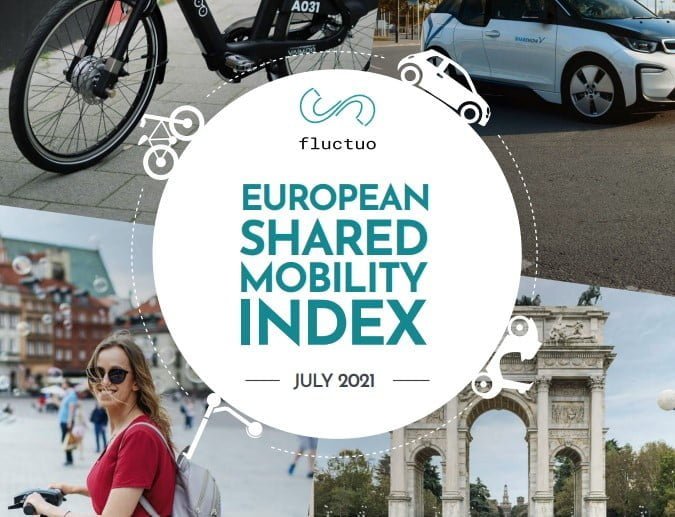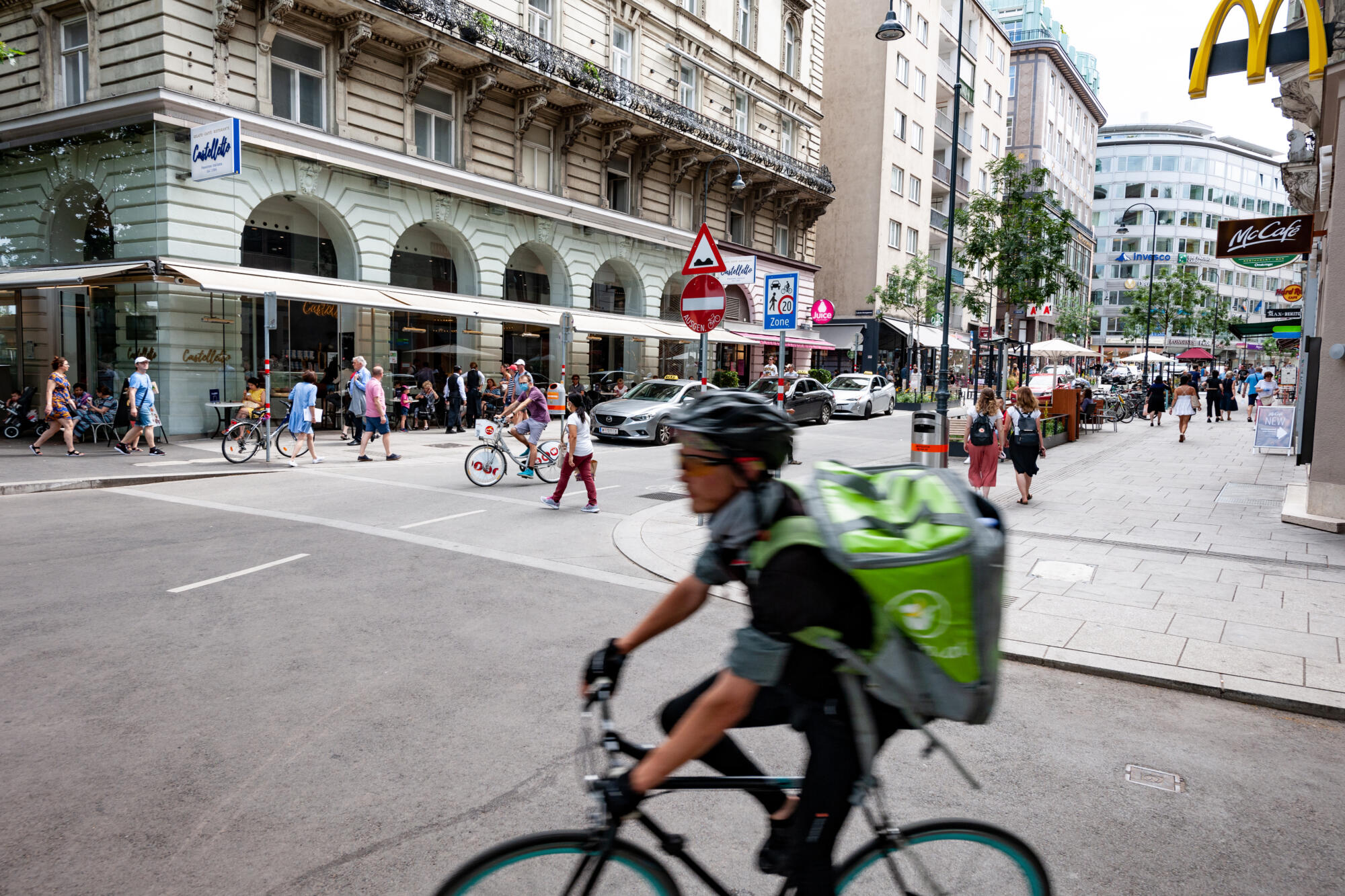A look at the European Shared Mobility Industry: Fluctuo’s latest Index
Fluctuo, Europe’s leading aggregator of data on shared mobility services (bikes, scooters, mopeds, cars) just released the new European Shared Mobility Index Report, gathering data from more than 200 shared mobility providers across 85 EU cities, to offer an accurate snapshot of the European shared mobility industry.
The European Shared Mobility Index published by Fluctuo, provides a quarterly snapshot of the shared mobility market across 16 European cities, selected to highlight diversity in size, geography and market characteristics. Supported by POLIS, the Index’s scope encompasses shared bikes (both free-floating and docked systems), scooters, mopeds and shared cars for drivers (free-floating, station-based and peer-to-peer). All maps, tables and graphics are point-in-time analyses based on available data as at 30 June 2021, unless otherwise indicated. Vehicle and trip data were sourced directly from operators, via open data sources, from mobile applications and public announcements. Industry averages and some data extrapolation were used to fill remaining data gaps.
The Q2 edition of the Index shows net growth across all 16 markets with particularly strong results among scooter-sharing operators. The industry continues to shake off pandemic restrictions and is showing strong signs of recovery. The second quarter was characterised by a rebound in activity, bold expansions from several operators and a growing confidence in the summer season ahead.
Among the key findings, the Index shows us an increase of 15 % total Fleets since March 2021, as well as an increase by 76% of total Ridership.
The European Shared Mobility Index monitors major European cities, among which figure several POLIS members:
Madrid, Spain
With approximately 5,600 shared mopeds serving a population of around 3.2 million, central Madrid has some of the highest concentrations of shared motor scooters in Europe. If mopeds are the transport of choice for many madrileños, it is likely thanks to longstanding operators and some clear guidelines from City Hall. However, city officials continue to grapple with Madrid’s complex permit system for other free-floating services (e.g. separate fleet caps for free-floating bikes applied inside and outside the metropolitan ring-road free-floating scooter operators regulations) A review of free-floating permits is planned to give local operators more clarity in the months ahead.
Brussels, Belgium
Brussels has historically been dominated by car ownership but the award-winning regional mobility plan “Good Move: 2020-2030” helped the city “offer users a range of integrated services, which replace the need to own a personal car”. The plan includes a dedicated shared mobility strategy including a reallocation of parking space in favour of shared vehicles. Brussels also has a clear vision on Mobility-as-a-Service and envisages “a single platform to access all mobility services in Brussels”. Some level of data sharing has been made compulsory for all shared mobility providers across the city, with much of this information made public on the city’s open data dashboards. Brussels currently has the widest range of shared mobility services per person than any other capital in the Index.
Stockholm, Sweden
With thousands of scooter riders criss-crossing the inner city, Stockholm may seem like the typical European shared mobility market. But on closer inspection, the Swedish capital hides some stark differences. For scooter sharing, Stockholm is indeed well served with all of the big players firmly established and a high per-capita vehicle rate. For shared bikes, the City Council is looking to contract a new operator later this year and to have the new municipal bike sharing system in place by spring 2022.
Vienna, Austria
From 2014, Vienna's authorities recognised that “sharing instead of owning” would become an important principle for the city, supporting traditional bike-sharing stations and car-sharing services ever since. The city is focusing on its ‘Smart City Framework Strategy’ including major investments in Mobility-as-a-Service. Vienna’s public transport operator launched the all-in-one mobility app WienMobil in 2017 and it is now reportedly used by one third of city residents. While full Level 2 integration remains ongoing, WienMobil combines Vienna’s public transit services with those of 12 other mobility providers, covering approximately 3,200 of the city’s available shared vehicles.
Read Fluctuo’s full European Shared Mobility Index publication here.




